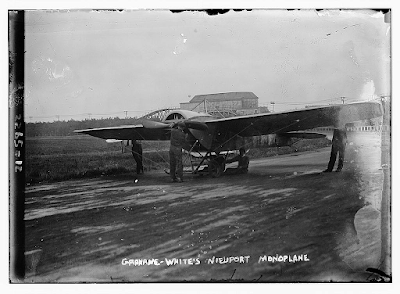Why do we study it?
It was the
last lesson of the day. Mr Balcombe donned his mortarboard and his gown. White
chalk powder adorned the latter. This was from the Latin class after Assembly;
he had flung the blackboard wiper at Brockley Minor, an especially dense member
of the Remove who failed to conjugate the verb manere. The missile had
missed, hitting the rear wall of the classroom with a dull thud and releasing a
white cloud that caught the morning sunshine that streamed in through the high
sash window. “Since you cannot conjugate manere, you will, er, remain
in detention after supper this evening,” said Mr Balcombe, delighted with his
own wit.
He also had
the overpowering sensation that he had met him, at least briefly, years before.
“I
understand, Balcombe, that his lessons are a little – er, unorthodox,” the
Headmaster had said before lunch. “Sir Rodney Bush and one or two others have
enquired. It seems their boys have mentioned them.”
“The lessons
worried the boys in some way?” asked Mr Balcombe. He sipped his sherry.
“Well, no,”
said the Headmaster. “They said they enjoyed them. So you might sit in on a lesson
or two and check he is teaching properly.”
If Mr
Lawless thought this unusual, he gave no sign of it. Mr Balcombe seated himself
by the window and watched his colleague write on the blackboard, then turn to
the class. On the board he had chalked:
EMERGENCE
And in a
smaller hand:
Of what?
When? Why? What happened? Then:
DID WE
KNOW?
“Last week
I asked you to consider these, with reference to a change, or incident, of your
choice,” said Mr Lawless. “You have written essays. Bush. Tell us of an age and
its emergence.”
“I thought
of the Black Death, sir,” said Bush.
“Very good.
The emergence of – what? A disease yes, but of what new phase or age?”
“Men asked
more for their labour, sir,” said Bush. “So farming changed.”
“It did.
The Acts of Enclosure, the arrival of sheep – what is emerging, Bush?”
“A prosperous
new world, sir.”
“Indeed.
For some. But as the plague raged, none knew of that; only of the terror they
felt. So. Thorpe. Your essay. Most original. Tell the class what emerged.”
“The age of
steam, sir. Newcomen’s engine.”
“Yes. But
did we know what was happening?”
“A few
Cornish miners may have done, sir.”
“Exactly.
The rest did not know,” said Lawless. He was walking back and forth before the
class, stroking his chin. “That was in the 1690s. Two hundred years later, we
cannot imagine life without the train. The cotton mill. And now the Dreadnought.”
He looked around the class. “Now, someone – Bush, I think – asked me earlier
this term why we study history.” He looked at a spotty youth at the back of the
class. “Grimbly, tell me why we study history.”
“So that we
can spot it happening, sir?”
“Precisely,”
said Mr Lawless. “Tell me, everyone; is an age emerging today? Now? In this
year of our Lord nineteen hundred and twelve? And how shall we know?”
No-one
answered, for there was a hullabaloo from an adjoining classroom; and then a
noise appeared from outside, a clawing, ripping sound, and doors banged as boys
poured through the corridors and out onto the terrace that led to the playing
fields. All turned their heads upwards, eyes shielded against the late
afternoon sun; the noise grew louder and a shadow crossed the First Form
cricket pitch and there it was, an assemblage of sticks and wires and stretched
doped linen, a trail of black smoke behind it, drawn across the sky by two
spinning discs that caught the sun. It drifted past them, perhaps a hundred
feet above, the ripping, tearing sound assaulting one’s eardrums, the boys
cheering and tossing their caps in the air.
“Well I’ll
be damned!” Mr Lawless chuckled. “I do believe it’s the Daily Mail
aeroplane!”
“It must
be,” said Mr Balcombe. “I did hear it might come this way; how splendid! I
suppose that’s that Grahame-White chappie conducting it.” The latter’s hunched
figure was just visible as the aeroplane passed over the Headmaster’s house and
proceeded in the direction of Great Billingham. In the quad a horse neighed and
whinnied between the shafts of the Chaplain’s dogcart and Cook craned her neck
at the sky saying “Well I never! Well I never!” over and over again, twisting
her apron between her hands.
When the
aeroplane was out of sight the two men rounded up their charges and chivvied
them back to the classroom. As they followed the last stragglers across the
terrace, Mr Balcombe said: “I did say I was sure I had met you before you
joined us and now I fancy I know when. Were you ever in the Cape Colony?”
The other
frowned. “Yes. That was some years ago.”
“Indeed.
During the South African War. Were you serving there? I met you, I think, on a
visit to the Second Hampshires.”
“Yes, I
served with them. I remember you now you mention it. We left for the Transvaal about then.”
“How was
the Transvaal?”
“We were
engaged in farm clearances,” said Mr Lawless. He was silent for a moment, then
said: “I resigned my commission not long afterwards.”
“Oh.”
As they
reached the door Mr Lawless paused for a moment, then turned and looked at the
sky. “I wonder, Balcombe. What has just emerged… and what new
beastliness will we commit with the machine we have seen today?”
More flash fiction from Mike:






